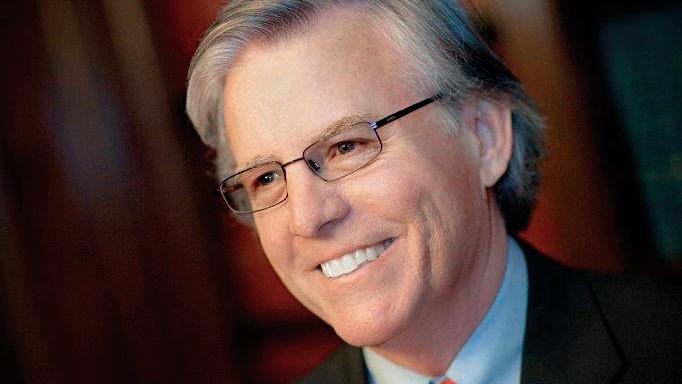An honest senator dared to speak out for a halt to foreign aid and foreign subversion that drained away the people’s money. He was scoffed as a reactionary.
By R.D. Skidmore, Prof.
When history becomes forgotten or is not taught then it becomes a history to be repeated. Such is the case over time.
“Once there was a Great Nation….” wrote Gary Rekstad for an historical abstraction; editing it further a summary is reproduced here for you to read and speculate which nations’ story is being told?
“Once there was a Great Nation—founded by the pilgrims who decided to leave their own country, which didn’t encourage freedom of religion or freedom of speech. They migrated to an uncivilized land inhabited only by savages. The rock where they landed was to become a national shrine. They drove off the natives, built rude shelters and houses of worship, meanwhile setting aside a special day to give thanks. These pilgrims—all stern, austere men—believed in their God, but they also believed in work. They established schools under religious leaders that, in a way, became the first public, free education in the world.
While the rest of the world chuckled, the pilgrims persevered. Intolerant of wrongdoing, they used the gallows to punish criminals. In their day-to-day activities they had no patience for the weak and degenerate, who, if pampered, becomes the cancer of a nation.
These pilgrims engaged in trade and commerce as their community grew and became moderately prosperous.
Other colonists came and established communities, and some of the noblest words ever written began to surface. Facades of our modern government buildings bear some of the legends written back then: ‘liberty,’ ‘justice,’ ‘freedom of worship.’
Then one of the older nations sent tax agents to exploit the colonists. The colonists sent their greatest men as representatives to a general assembly, choosing a gentleman farmer as their leader. He united them and shook off the shackles of oppression as they won the fight against the ‘old world.’ That farmer is known as the ‘father of his country.’ Today, a famous U.S. city is named after him.
Ultimately, a civil war divided the fledgling country. Its leader, who tried to keep the republic united, was assassinated. His murder immortalized by a famous playwright. The nation rose to become a world power.
Eventually, many of the nations’ politicians became ambitious for power, making deals with leaders of important factions.
The republic became entangled with foreign alliances. These alliances brought wars and the wars brought taxes. The citizens didn’t seem to mind as they wanted security and since this also increased trade and industry, and they were told these new taxes only affected the rich.
Farmers petitioned for price supports and the government bought up crops and stored them in warehouses. Industrialists were next at asking for tax benefits.
Finally, the government became all-powerful. It guaranteed to protect the people from all forces of nature. Taxation grew and grew. Bureaucracy thrived by providing free housing, free food, and free entertainment.
The middle class declined under the added tax burdens. Crime became so commonplace that it was dangerous to walk the streets at night. A crippled man led the nation into more wars and foreign entanglements.
A general, who had been victimized by the government, pleaded with the nation to return to the principles of the founding fathers. The people scoffed, and he died, bitterly in anguished thoughts.
An honest senator dared to speak out for a halt to foreign aid and foreign subversion that drained away the people’s money. He was scoffed as a reactionary.
The nation fell deeper into debt. It joined a league of the world with enemies that exploited it; increased taxes to send wheat to its enemies; devalued its currency, substituting base materials for silver in its coins.”
Of course you easily deduced this summary is of Ancient Rome.
I’ve skipped some lines to bring you those that are facts of history. Rekstad had concluded that the nation—Rome—was totally corrupt, its middle class dead. The barbarians moved in and destroyed civilization. So the government opens our borders with resettlement plans in our towns and pays the cost by taxing the people for its social funding.
The parallel to our own history is uncanny, such that one wonders if we can avoid those last couple of sentences – even as our national debt is $19 trillion.
The rock where those first Romans landed is called the pilgrim’s rock—foundation of the Temple of Jupiter.
The gentleman farmer was Cincinnatus; the assassinated leader Julius Caesar; the crippled leader—Caligula; the general Mark Anthony and the honest Senator Cicero. And Shakespeare is the English playwright who dramatized Caesars’ death.
Nation’s, like men, it is sometimes said have their own destiny, and should not be indifferent to their beginnings; how do you think our nations’ story will finish?




















